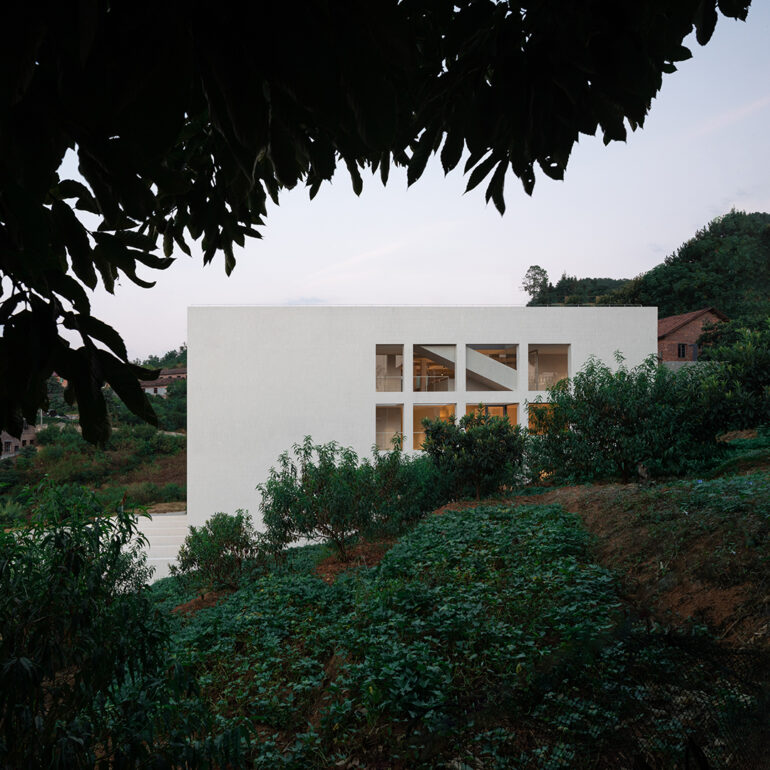Architect / Designer:
Design Team:
Design Team: Jiahuan Ye,Xian Deng, Xueting Wu, Yejiong Zhou, Lu Bai (intern), Zheyu Liu (intern)
MEP Consultant: Sanjiang MEP Consulting
Lighting Consultant: Mischen Lighting Design
Construction Contractor: HCCHARM Architecture & Decoration
Copyright:
Country:
Begonia Inn is located on the shores of Dongjiang Lake, Chenzhou, Hunan Province.
The place owns the natural beauty of the mist spectacles on Dongjiang Lake, and the northern part of Bailang Town is known as the ‘Little Erhai’, which is also geographically located at the junction of Hunan, Guangdong and Jiangxi provinces. It is about 30 kilometers from the urban area of Chenzhou to Dongjiang Lake scenic area, a place often visited by travelers.
Begonia Inn was built with the goal and good wish to be ‘a place for travelers to stay’. It would be meaningful for people who spend time and to feel more and make time slow down when staying in the hotel, enjoying as well as relaxing.
The village retains the way it is – residential houses built in the last century, the farmhouses that sprang up around 2 decades ago, and the roads, parks and other infrastructure developed in recent years – the historical and the newly constructed co-exist that forms up a contradictory yet vivid scene.
The original frame of Begonia Inn is next to a terrace field facing the Dongjiang Lake since the house owner made use of half the terrace to build the ‘house’. Houses like this are common in the village. The subtle relationship could be read between buildings, terraces and village. The frame is divided into X-axis on east-west and Y-axis on south-north, the former representing publicity that is achieved by segmenting the limited landscape with almost total transparent public spaces; while the latter representing privacy that 16 standard guest rooms are divided by five pieces of walls, much more in connect with human scale.
Village and terraces ‘enter inside’ from both directions of the gable walls. The public area of the hotel are visible to villagers. Although physical segmentation between the people inside and outside are the same as the house in terraces, people could be mutually perceived through the display of different activities, ‘knowing each other’ removes the sense of strangeness. Urban and rural activities unfold in contradiction.
Accommodating large public space in this modest hotel, with extraordinary scaled steps, stairs, walkways and atriums, is a unique way of making the travelers’ stopover. Such lots of public spaces make multiple choices for guests. Meanwhile, this urban hotel is constructed with locally familiar materials. In such a way as to seek dialogue, contradiction and symbiosis with the environment on a daily basis.
Begonia Inn was carried out at a total cost of $ 970,000.00 with full completion as to both architectural and interior design. Many internationally renowned brands corporates with the design team to guarantee its quality. During design and construction process, the architects have taken full account of the relationship of the new hotel to its adjacent buildings, its house owner neighbors, and nature. The project is environment friendly as the hotel is in a Scenic Area that solar panels are used on the roof as well.
Contradiction and symbiosis, maintaining and development is the topic that matters.









